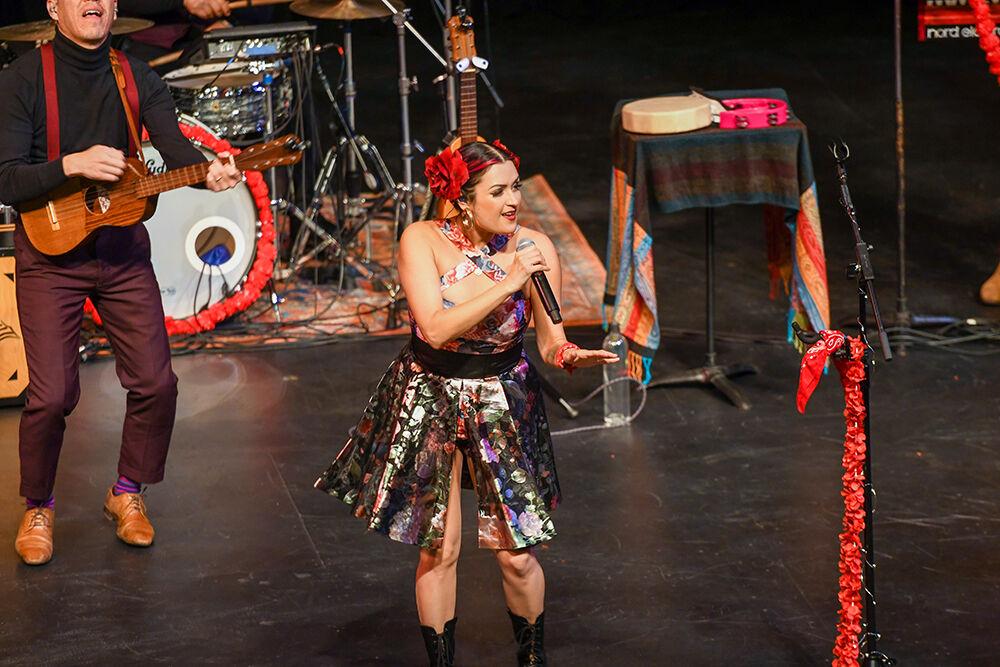Los Angeles-based band Las Cafeteras performed at Talley Student Union on Saturday, Feb. 5 at 8 p.m. in Stewart Theatre, following a pre-show talk at 7 p.m. Composed of six performers, Las Cafeteras has performed across the nation and internationally. The band performed a mix of folk and punk tunes, a dynamic style of music from Veracruz, Mexico.
The band’s songs, sung in both English and Spanish, have gained much recognition, including “La Bamba Rebelde,”“Luna Lovers,”“Oaxaca Love Song 2” and “Georgia on my Mind.” Las Cafeteras focuses on using music as a way to build bridges, tell unique stories and bring the community together.
“Music comes from a lot of people,” said singer and performer Hector Flores. “So do we.”
Flores explained how Las Cafeteras fell in love with Son Jarocho, a Mexican folk music style from Veracruz. The band members originally met as friends in college 10 years ago, uniting as “activist kids” and organizers for issues such as immigrant rights, environmental justice and community work.
The band’s name, which translates to “the coffee pots,” was inspired by the Eastside Cafe in LA, a community organization for which the band often volunteered. During the pre-show talk, singer Denise Carlos explained that, although the cafe was only “four walls and a door,” the band used the space for a multitude of teaching workshops.
In extending their musical breadth to reach wider audiences, Las Cafeteras has also played at a multitude of marches and protests. For instance, the band had advocated for saving South Central Farm in LA from being converted into a Forever 21 warehouse which would displace the families living on the acres.
Carlos explained that Las Cafeteras’ albums fuel the positive change needed in various communities. The band’s music takes on a free-flowing, communal form through singing, dancing, playing instruments, and call and response.
“Culture can survive through music, people can survive through song,” Carlos said.
Although the pandemic put a hold on performing, Las Cafeteras resumed its creative work this year with a tour in spring 2022, residencies, classroom conversations and performances at different universities. Quarantine allowed time for the band to reflect on its own purpose, and revisit their view of music as healing.
“We could rock a corner in the coffee shop, but we can also rock festivals with 10,000 people,” Flores said. “We could rock your classroom, or we can rock the club.”
Flores also spoke to the way music can attract folks in the way that politics and other things can’t.
“Politics are where some people are some of the time,” Flores said. “But culture is where most people are most of the time.”
The variety of cultural influences infused the performance with an upbeat tempo that conveyed the complex nature of our times.
The full-time artists have been successful in making art sustainable, using their passion for self-expression and music to pay rent and make a living. Flores said he and his colleagues see themselves as musical and cultural ambassadors, intertwining music and stories to connect with different neighborhoods.
Las Cafeteras strives to build skills, connections and networks to pave the way for other artists to turn their music into a living. The band is currently recording their third album and producing music for a few documentaries. At the end of the day, Flores proudly recognizes how Las Cafeteras has come a long way from home.
“Movement has always been a soundtrack,” Flores said. “I want Las Cafeteras to be part of that track.”














